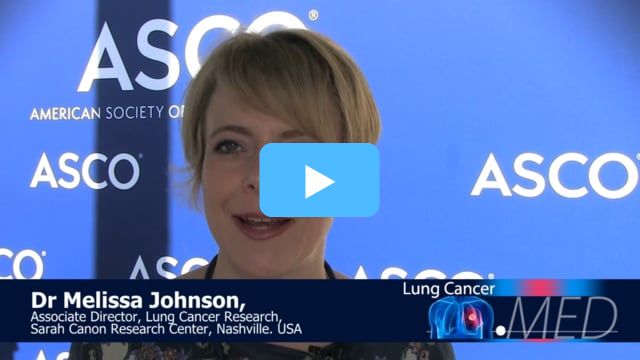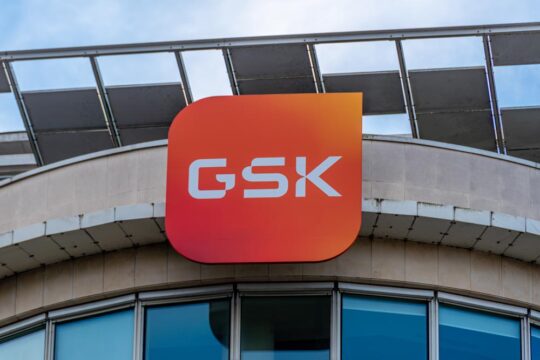Advertisment
ASCO 2018: Choices for front-line NSCLC

With permutations of potential front-line treatments for non-small cell lung cancer (NSCLC) seemingly endless, one thing seems certain…
Written by Thomas R Collins.
Professor Mark Kris (Memorial Sloan Kettering Cancer Center, New York) and Dr Melissa Johnson (Sarah Canon Research Center, Nashville) discuss how front-line management of NSCLC following ASCO 2018.
The latest findings — including the KEYNOTE-042 results showing an overall survival benefit for pembrolizumab compared to chemotherapy, and recent CHECKMATE findings on nivolumab and ipilimumab versus chemotherapy — make it increasingly clear that immunotherapy is practically a universal option for initial treatment, said Professor Solange Peters, Head of thoracic oncology at University Hospital in Lausanne, Switzerland, and ESMO President Elect.
With permutations of potential front-line treatments for non-small cell lung cancer (NSCLC) seemingly endless, one thing seems certain:
“I think we have now opportunities for our patients to deliver immunotherapy frontline,” she said. “And the time of second-line immunotherapy has gone.”
She suggested that the choice for patients with locally advanced or metastatic NSCLC and a PD-L1 expression of at least 50% and no targetable genetic alterations should be the PD-1 inhibitor pembrolizumab. For those with lower PD-L1 expression, clinicians could choose a platinum doublet of chemotherapy for those with a tumour mutation burden (TMB) of less than 10 mutations per megabase, and a nivolumab and ipilimumab combination for those with a TMB of 10 or higher, she said.
A pembrolizumab-platinum-pemetrexed combination or atezolizumab-bevacizumab-carboplatin-paclitaxel could also be considered, regardless of TMB, in non-squamous patients.
For squamous cell patients with low PD-L1 expression, a pembrolizumab-platinum-taxane combination could be considered.
Those with EGFR, ALK, BRAF and ROS-1 mutations should attempt targeted therapy as first-line treatment.
Clinicians have little choice but to rely on PD-L1 and TMB as biomarkers, but they leave a lot to be desired, she said.
“To me, this approach is not precision oncology, it’s not personalized oncology,” she said. “We will need to define subgroups of patients which define different strategies and different algorithms in the future.”
Dr Leena Gandhi, Director of thoracic medical oncology at New York University, also pointed out the flaws of PD-L1 expression and TMB.
“Unlike a fixed genetic driver, PD-L1 is really not as black and white as a selection marker — it is a much better predictor at higher levels of expression,” she said. “The response rate even in those with high PD-L1 expression is still less than 50%. And PD-L1 does not effectively select out all patients who will not benefit from therapy.”
High tumour mutation burden is similarly flawed, she said.
Dr Gandhi laid out treatment scenarios that largely mirrored those of Dr. Peters’ suggestions, including pembrolizumab monotherapy in those with PD-L1 expression of at least 50%, but typically only combined with chemotherapy in those with lower levels.
“Could there also be a role for pembrolizumab monotherapy in low PD-L1-expressing patients?” she said. “I think in theory there could be. There could be certain individual characteristics for a patient who is not chemotherapy eligible, who didn’t have a significantly high tumour burden where response rate matters, where molecular testing was not feasible, but that cost was not an issue. But honestly these could be unusual and very specific circumstances.”
She expressed hope for better guidance for clinicians.





